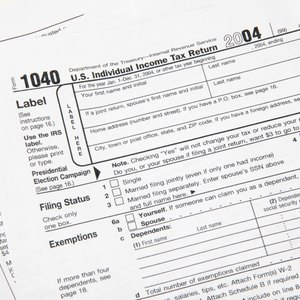
When you receive an audit notification from the Internal Revenue Service, there really is no reason to panic. No one wants to experience an audit, but many times the audit request is not the result of a error on your previous tax returns. That said, it is important to prepare for your audit as thoroughly as possible, and sometimes you need more time than the notification provides. In this instance, you are within your rights to request a postponement.
How Audits Are Selected
According to the IRS website, there are several means of selection for a tax audit. Random selection with the use of a scientific algorithm or formula could prompt an audit for a return. If you claimed an amount of income that does not match a W-2 or 1099 form that was submitted to the IRS, that could cause an audit. Sometimes it's not your return that prompted the audit, but the return of a business partner or investor that was flagged and your return is needed for that audit. Also major fluctuations in income from one year to another could trigger an audit flag.
How to Prepare
Gather all of the requested documents. The IRS notification letter will provide a list of all required forms and returns for the audit. Examples of forms you will need include, the return in question, any W-2s or 1099s related to the return, statements regarding taxable investments, identification for each taxpayer and receipts for expenses included on the return. According to the IRS website, hard copies of the requested documents are preferred, but in some cases, electronic copies can be accepted.
Postponing Audit
If you need more time to gather documentation, or you plan to bring legal representation to the audit, you may request a postponement of the audit. You can also request a postponement or change of venue if you have moved and the selected audit office is a distance from your new home. Generally, the IRS is accommodating to audit requests, provided the requests are not suspected to be for evasion purposes.
How to Request Audit Postponement
Postponement requests, along with all correspondence with the IRS should be done in writing. If time is as issue, a phone call to the IRS office where the audit is scheduled to take place is acceptable, but send a letter as well so it is included in your audit file. There is no set number of times an audit can be postponed, however requests the IRS deem unnecessary will result in a denial of the request.
References
Writer Bio
K.A. Francis has been a freelance and small business owner for 20 years. She has been writing about personal finance and budgeting since 2008. She taught Accounting, Management, Marketing and Business Law at WV Business College and Belmont College and holds a BA and an MAED in Education and Training.
